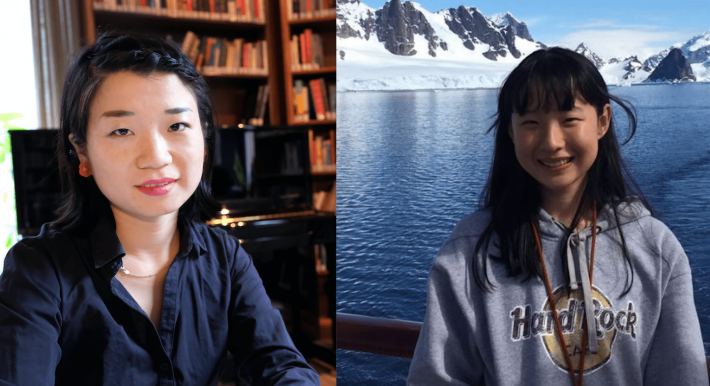BY ANGELA CHAN
As climate change precipitates societal and geopolitical changes in China and beyond, there is a growing need to scrutinise both climate discourse and the gendered aspects of environmental change.
Our female panel on “Gender and Climate Change in China” featured insights from Karoline Kan (China environmental journalist, NüVoices Board Member) and Zongqi Yu (Climate change activist and Chinese Youth Delegate, 24th UN Climate Change Conference) on how women and young people in China are working at the intersections of climate change and gendered social issues. The session was moderated by Jessie Lau (Journalist, NüVoices Board Member) and held in collaboration with Young China Watchers London on 25th August.
Watch the panel below:
To preface the conversation, Karoline and Zongqi both outlined how environmental and climate activism differs in China from other places in the world, like Europe and North America. Karoline – winner of the 2019 Young China Watcher of the Year Award and author of Under Red Skies, the first English memoir by a Chinese millennial – explained that street protests and direct actions, which are familiar campaign strategies in the West, are forbidden.
Instead, environmental groups in China must work collaboratively with the approval of the government and as extensions that implement its top-down environmental policies, said Karoline, whose work was recognised in 2016 by the International China Journalists Association and awarded with an Honourable Mention by The Society of Publishers in Asia Awards.
With this, Zongqi adds that young people in China access environmental and climate projects through career-orientated events and educational programmes, which are often led by professional experts like professors, UN delegates, and think tank members. Now a student at the University of Michigan pursuing Environmental Engineering and Public Policy, Zongqi has been active in the field of Climate Change advocacy for the past four years. She visited the Antarctic Peninsula and the Svalbard Islands where she organized a series of educational events, and participated in the organization of International Youth Summit on Energy and Climate Change
Whilst these knowledge hubs nurture young people’s skills and research areas, Zongqi also expressed encouragement for spaces and mentorship that enables Chinese youths to gain confidence to debate more independently on climate activism.
Climate change exacerbates many other existing problems and a significant social issue that hinders a citizen-wide climate urgency is the growing wealth gap in China. Zongqi mentioned her work with young women in rural Gansu, who showed her the climate impacts on their usually hardy crop. Karoline described that as the country continues to develop, those struggling in poverty find it difficult to prioritise global climate change ahead of more currently felt socio-economic disadvantages like poverty.
However, climate disasters such as the recent widespread floods, which are affecting largely the rural poor, reiterate for many citizens that climate change is a pressing concern for the country. Karoline explained how poverty and climate change overlap as gendered issues, whereby girls and women in rural and agricultural areas are already disproportionately affected by lack of land and property ownership, education opportunities and traditional social rules, such that climate impacts worsen this inequality.
Concluding the session, Zongqi and Karoline both hoped for a wider understanding of how climate change is connected to existing issues that Chinese citizens face today. Zongqi suggested that youth activism can be encouraged with more mainstream education in schools as well as online through social media coverage. She gave insight to how the entertainment industry controls much of the information streams for young people away from social issues like climate issues, although some environmental organisations do collaborate with celebrities to highlight climate activism to larger audiences.
Karoline echoed the need for a more grassroots citizen drive to implement the government’s environmental policies without compromising the rural poor, women and minority groups, including those abroad where China exports its environmentally harmful activities.
About the author
Angela Chan (UK) is a curator, researcher and artist. As a ‘creative climate change communicator’, she collaborates widely with visual artists, activists, speculative fiction authors and youth groups. She holds an MA in Climate Change (KCL) and researches across decolonial climate justice, geography, feminist sciences and contemporary speculative fiction. Angela independently curates as Worm: art + ecology (wormworm.org) and co-founded the London Chinese Science Fiction Group hosted at UCL. Her artistic practice explores decolonial climate storytelling through video recordings, remote sensing and speculative fiction writing. Follow her on Twitter.


